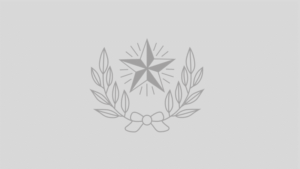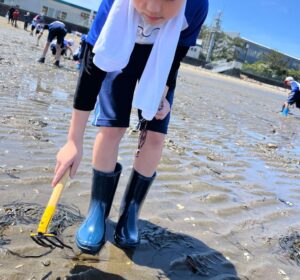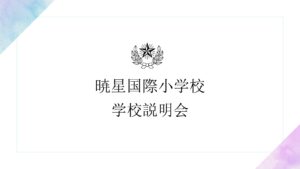The Japan Times Spelling Beeにおいて本校の5年生の児童と暁星国際中学校に内部進学した中学1年生の生徒が大活躍します。
3月10日(土) PM12:30~の決勝の模様は、Ustreamにて生中継予定だそうですので、皆さん是非ご覧ください。
Ustream jtimes.jp/jtbee
On March 10th, Hiroto Kato, a student attending Gyosei Primary will participate in the Japan Times 3rd annual spelling bee. The champion will be awarded a trip to Washington D.C to participate in the Scripps spelling bee. Tomorrow’s event will be streamed live on U-Stream beginning at 12:30. The link is provided below.
(以下、JapanTimesの記事より引用 掲載元:http://www.japantimes.co.jp/text/nn20120305f1.html)
The Japan Times Bee recasts its spell
The Japan Times is holding the third spelling bee in Japan on Saturday, when winners from 36 schools throughout the country will compete to win the chance to join the annual finals in the United States.
The spelling bee is a popular, time-honored event in the U.S. and some other countries where young students compete to correctly spell words.
The participants start at their local school or community-level competitions, then move on to higher levels until reaching the national finals. The competition is fierce as contestants, called spellers, are eliminated after only one misspelled word.
Since 2010, The Japan Times has held the annual competition at its headquarters in Tokyo under authorization from E.W. Scripps Co., the organizer of the National Spelling Bee held annually in Washington.
In the upcoming third Japan Times Bee, winners of competitions at 36 international, Japanese and U.S. military base schools, ranging in age from 9 to 14, are taking part to win the right to participate in the U.S. finals from May 30 to June 1.
The event was started by American pastors in the latter half of the 18th century. According to Scripps, its purpose is to help students improve their spelling, increase their vocabulary, learn concepts and develop correct English usage. Today, the spelling bee is known as the largest educational support program in the U.S.
The first national event was held with nine contestants in Washington in 1925. Its popularity, prestige and the degree of attention increased steadily as the U.S.-wide competition was held every year, except for the wartime period between 1943 and 1945.
The word "bee," as used in spelling bee, is one of those language puzzles whose etymology have never been satisfactorily accounted for. A fairly old and widely used word, it refers to a community social gathering at which friends and neighbors join together in a single activity (sewing, quilting, barn raising, etc.), usually to help one person or family.
"Spelling bee" is an American term. It first appeared in print in 1875, but it seems certain that the word was used orally for several years before that.
Those who used the word, including most early students of language, assumed that it was the same word as the one that referred to the insect. They thought that this particular meaning had probably been inspired by the obvious similarity between these human gatherings and the industrious, social nature of a beehive.
But in recent years scholars have rejected this explanation, suggesting instead that this "bee" has a completely different origin. One possibility is that it came from the Middle English word "bene," which means "a service" or "a favor," and is related to the more familiar word "boon."
The Japan Times Bee is being supported by the Embassy of the United States and the American Chamber of Commerce in Japan. The event is being sponsored by Costco Wholesale Japan, Nifco Inc., Qooco Japan K.K., Asian Tigers Mobility, Ritsumeikan Uji Junior and Senior High School, Simmons Co., Tokyo American Club, Stars and Stripes and Travel Nippon, Inc.
The Japan Times Spelling Bee will be broadcast live on Ustream starting 12:30 p.m. Saturday. Please go to jtimes.jp/jtbee
(以下週刊STの記事の写し、クリックで拡大)




